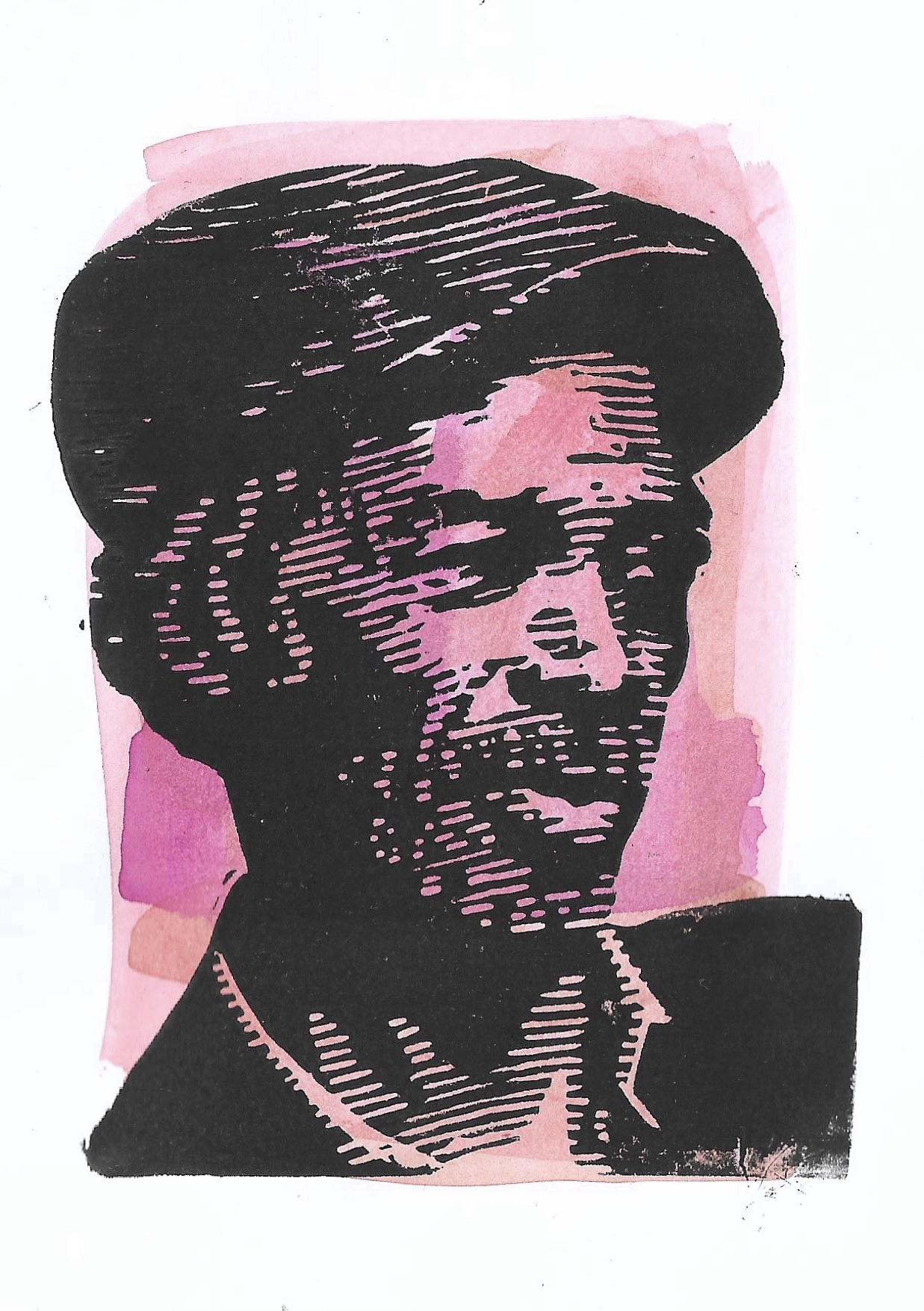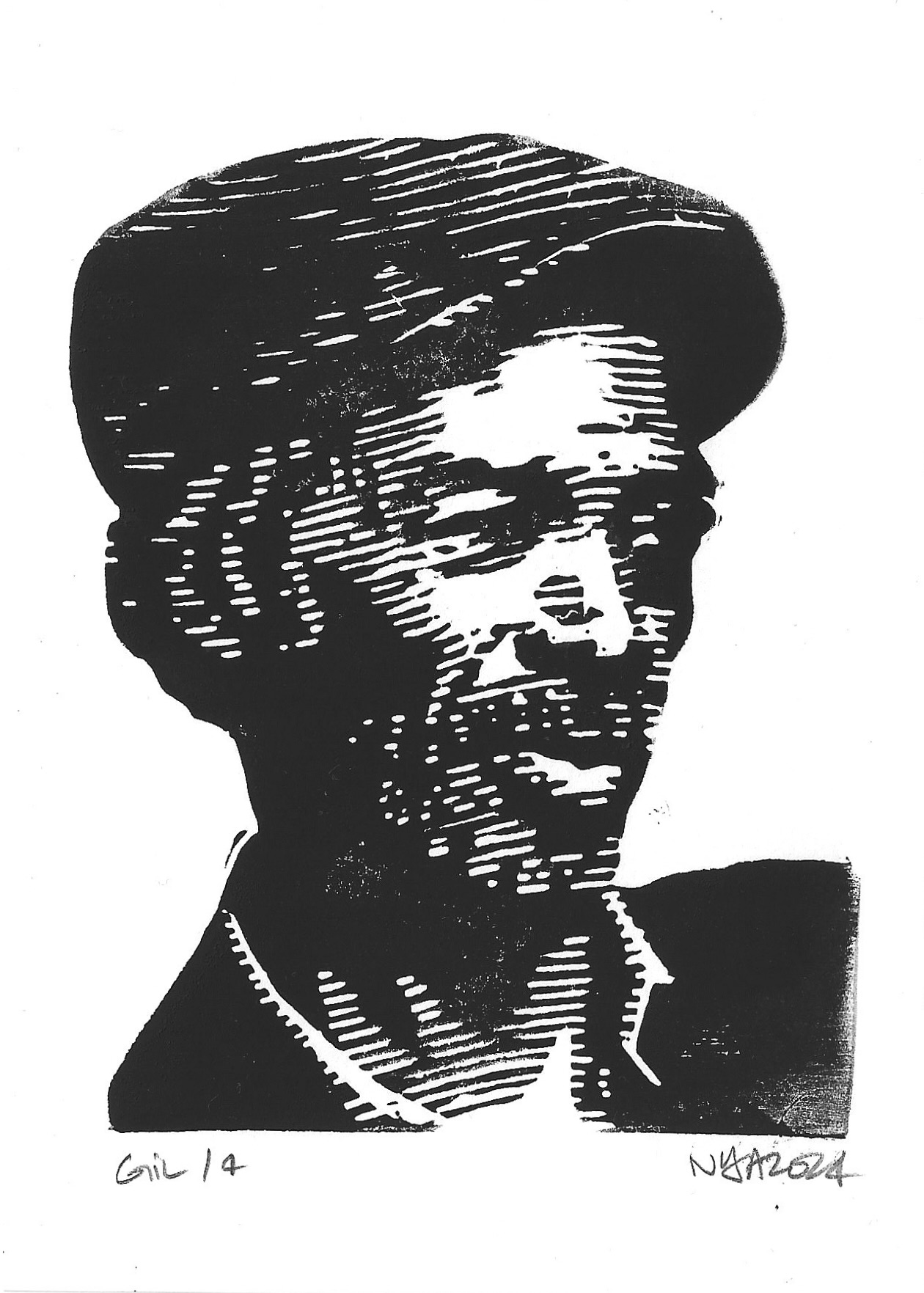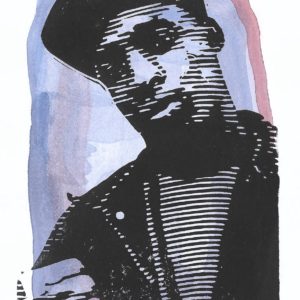Description
Gil Scott-Heron Postcard
Gouache and linoprint on paper.
Format A6, 250g/m2.
Open edition, signed and numbered.
Carved and printed by hand with love and respect.
Gil Scott-Heron (1949-2011) was an American poet, musician, and author, widely regarded as a pioneer of spoken word and a significant influence on the development of hip-hop. Born in Chicago and raised in Tennessee and New York, Scott-Heron’s upbringing was marked by an early exposure to the struggles of African Americans, which deeply influenced his work.
Scott-Heron attended Lincoln University in Pennsylvania, where he was inspired by the Harlem Renaissance poet Langston Hughes. His first novel, « The Vulture, » was published when he was only 19, showcasing his sharp literary talent. Around this time, he also began collaborating with musician Brian Jackson, a partnership that would prove foundational to his musical career.
In 1970, Scott-Heron released his debut album, « Small Talk at 125th and Lenox, » a raw, spoken word performance recorded live, accompanied only by percussion. The album featured « The Revolution Will Not Be Televised, » a searing critique of mass media and American consumer culture that became one of his most famous works. This track exemplified Scott-Heron’s ability to blend poetry with music to create powerful social commentary.
Throughout the 1970s and 1980s, Scott-Heron continued to produce music that addressed pressing social issues. Albums like « Pieces of a Man » (1971) and « Winter in America » (1974) combined jazz, blues, and soul with politically charged lyrics. His music tackled topics such as racial inequality, poverty, and the struggles of everyday life for African Americans. Songs like « Home is Where the Hatred Is » and « The Bottle » highlighted issues of drug addiction and despair in urban communities.
Scott-Heron’s work was characterized by its raw honesty and its ability to articulate the experiences and frustrations of marginalized people. His distinctive voice, both in terms of his literal baritone and his narrative perspective, provided a powerful medium for his messages. He was not just a musician but a poet and a prophet, often described as the « Godfather of Rap » for his influence on the emerging hip-hop genre. His rhythmic spoken word delivery and socially conscious lyrics laid the groundwork for future hip-hop artists.
Despite his critical acclaim and influence, Scott-Heron’s career was also marked by personal struggles, including battles with substance abuse and legal issues. These challenges affected his output and presence in the music industry, but his impact remained undiminished.
In 2010, after a 16-year hiatus, Scott-Heron released « I’m New Here, » an album that received widespread acclaim and introduced his work to a new generation. The album showcased a more reflective and mature perspective, blending electronic music with his trademark lyrical depth.
Scott-Heron passed away in 2011, but his legacy endures through his vast body of work. He is remembered not only for his contributions to music and literature but also for his role as a voice for social justice. His influence can be seen in the works of countless artists across genres, and his ability to combine art with activism continues to inspire. Gil Scott-Heron’s work remains a poignant reminder of the power of music and poetry to effect social change and to speak truth to power.









Avis
Il n’y a pas encore d’avis.